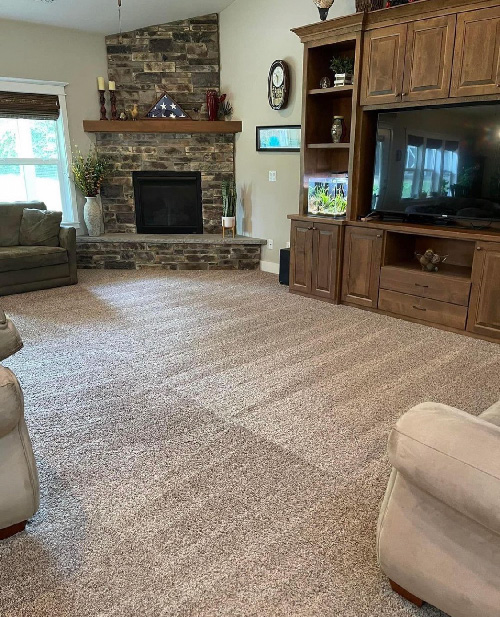Introduction
When it comes to our homes, we often think about aesthetics—how the paint looks, whether the furniture is in the right spot, or if that new rug fits. But let's take a moment to focus on something just as important: indoor air quality. Believe it or not, the air inside your home can be more polluted than the air outside. Crazy, right? So how do we tackle this invisible menace? Enter expert cleaners—those unsung heroes armed with mops and vacuums, ready to wage war against dust mites, pet dander, and all those other airborne nasties. Let’s dive into the ins and outs of improving indoor air quality one room at a time with expert cleaners.
Understanding Indoor Air Quality
What Is Indoor Air Quality (IAQ)?
Indoor air quality refers to the condition of the air within buildings and structures, particularly as it relates to the health and comfort of building occupants. Poor IAQ can lead to a range of health issues, from minor irritations like headaches and sneezing to serious conditions such as asthma or respiratory diseases.
Why Does It Matter?
You might wonder why you should care about indoor air quality. Well, consider this: we spend about 90% of our time indoors! So when you think about it, improving indoor air quality isn't just a luxury—it's a necessity.
Common Pollutants Found Indoors
Dust Mites: These microscopic critters thrive in warm, humid environments. Pet Dander: If you're a pet lover, this one's for you. Mold Spores: Especially common in bathrooms and kitchens. Volatile Organic Compounds (VOCs): Often released from cleaning products and paints. Smoke: From cooking or tobacco use.Improving Indoor Air Quality One Room at a Time with Expert Cleaners
The Role of Expert Cleaners
Expert Cleaning Service Tigard cleaners do more than make your home look spick and span; they play an essential role in enhancing your living environment's overall health by tackling these pollutants head-on.
How Can They Help?
- Deep Cleaning Services: Professional cleaning services can reach those nooks and crannies you often overlook. Air Duct Cleaning: A must for maintaining good airflow and reducing allergens. Carpet Cleaning: Carpets act like sponges for dust; professional cleaning helps eliminate trapped particles.
Room-by-Room Breakdown
Living Room
The Heart of Your Home
The living room is where families gather, relax, and unwind. Unfortunately, it's also where dust bunnies love to multiply!
Expert Cleaning Tips:
- Use HEPA filters in your vacuum cleaner. Regularly dust surfaces with microfiber cloths. Consider an indoor plant like a snake plant for natural air purification.
Kitchen
Culinary Creativity Meets Contaminants
Cooking releases smoke and odors that contribute to poor indoor air quality.
Expert Cleaning Tips:
- Clean exhaust fans regularly. Use vinegar solutions to degrease surfaces without harsh chemicals. Keep food stored properly to avoid growing mold in hidden corners.
Bathroom
A Hotbed for Mold Growth
Bathrooms are often damp environments perfect for mold spores.
Expert Cleaning Tips:
- Ensure proper ventilation during showers. Regularly clean grout lines with baking soda paste. Use mold-resistant paint for long-lasting protection.
Bedroom
Sleep Soundly With Fresh Air
Your bedroom should be a sanctuary—but allergens can disturb your slumber!

Expert Cleaning Tips:
- Wash bedding weekly in hot water. Invest in hypoallergenic pillows and mattress covers. Open windows regularly for fresh airflow.
The Importance of Regular Maintenance
https://www.anibookmark.com/business/naomi-s-cleaning-services-bs325055.htmlWhy Schedule Routine Cleanings?
You wouldn’t skip oil changes for your car; why would you neglect your home? Regular cleanings help maintain elevated IAQ levels year-round.
Benefits Include:
Reduced Allergens Improved Respiratory Health Longer Lifespan for FurnishingsChoosing the Right Cleaning Service
What Should You Look For?
Selecting the right cleaning service is crucial when aiming for improved indoor air quality.
Experience: Look for companies specializing in allergen reduction and eco-friendly products. Reviews: Online testimonials can give insight into customer satisfaction. Certifications: Ensure they comply with industry standards.FAQs About Improving Indoor Air Quality
How often should I clean my home?- Ideally, regular cleaning should happen weekly or bi-weekly depending on lifestyle factors such as pets or allergies.
- Yes! High-efficiency particulate air (HEPA) filters can effectively trap airborne particles that contribute to poor IAQ.
- Volatile organic compounds are emitted as gases from certain solids or liquids like paints, cleaning supplies, and pesticides; they can cause respiratory issues if inhaled regularly.
- Absolutely! Regular dusting, vacuuming with HEPA filters, using natural cleaning agents, and maintaining humidity levels can improve IAQ significantly without needing experts every time.
- High humidity levels promote mold growth while low humidity can lead to dryness in nasal passages; maintaining optimal levels is key!
- Incorporating houseplants like peace lilies or spider plants naturally purifies the air while also adding aesthetic appeal!
Conclusion
Improving indoor air quality one room at a time with expert cleaners is not just an aspirational goal—it's entirely achievable! By understanding the importance of IAQ and leveraging professional cleaning services tailored specifically towards this aim, homeowners can create healthier living environments effortlessly! Remember that it’s not just about keeping things tidy; it’s about ensuring your home nurtures you back! So go ahead—make that call today because clean air equals happy life!
In this article we’ve explored how expert cleaners play an integral role in creating healthier living spaces through effective cleaning practices aimed at improving indoor air quality one room at a time! Whether you're looking into hiring professionals or taking matters into your own hands—we hope you'll prioritize fresh airflow moving forward!